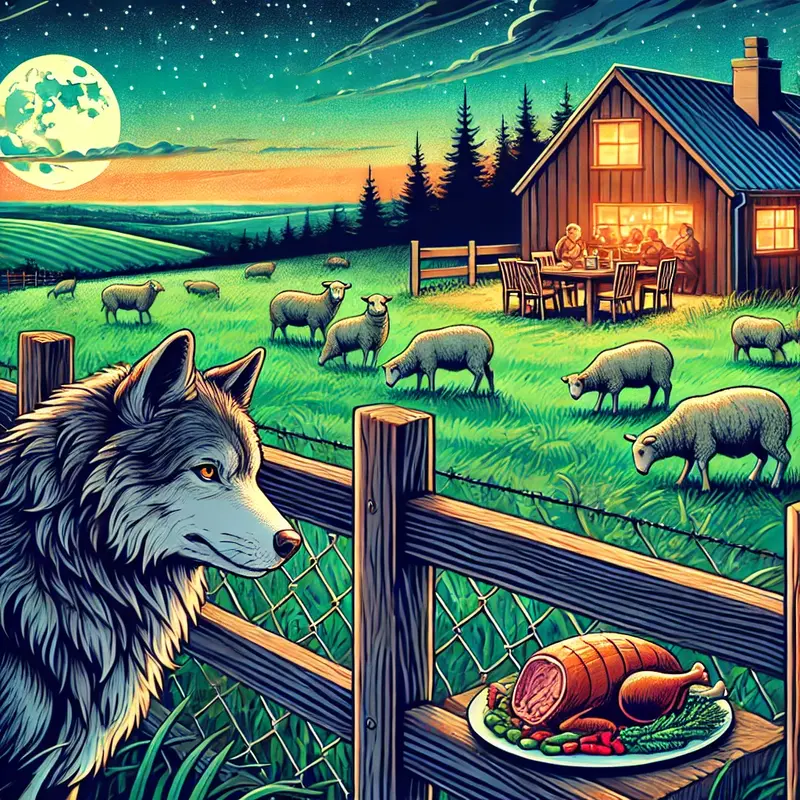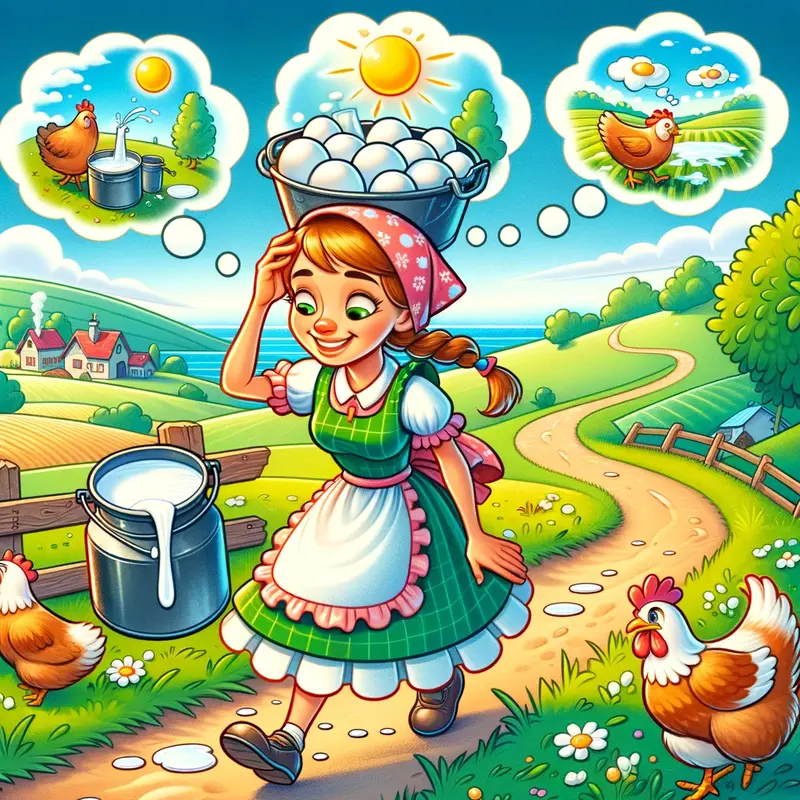The Wolf and the Shepherds: A Lesson in Understanding Our Own Faults
Introduction: A Tale of Morality and Reflection
In the quiet countryside, nestled among rolling hills and sprawling farms, lived a pack of wolves known for their cunning ways. Among them was a wolf who often roamed alone, searching for food. One fateful day, he wandered into a farm filled with sheep. This encounter would teach him—and us—a valuable lesson about judgment and hypocrisy.
The Wolf’s Desperate Attempt
The wolf, driven by hunger, crept toward the farm's sheep pen under the cloak of twilight. His eyes glinted with determination as he planned to snatch a meal. However, before he could act, the shepherds spotted him. They raised an alarm, chasing him away with loud shouts and stones. Embarrassed and defeated, the wolf retreated to the safety of the woods, his stomach growling in protest.
A Return to the Farm
Days passed, but the memory of the plump sheep lingered in the wolf's mind. Hunger gnawed at him, pushing him to return to the farm. This time, he approached cautiously, avoiding the watchful eyes of the shepherds. As he neared the farmstead, he caught a whiff of something tantalizing: roasted lamb.
The Shocking Discovery
Peering through a crack in the farmhouse wall, the wolf saw the shepherds and their family feasting. The table was adorned with a hearty meal, the centerpiece being a perfectly cooked lamb roast. The wolf froze, his mind racing. How could the very people who chased him away for seeking food justify eating the same lamb they had so fiercely protected?
Reflection and Realization
The wolf felt a mix of emotions—confusion, anger, and sadness. He realized the shepherds had condemned him for his actions while engaging in similar behavior. This revelation struck a chord. The wolf wasn’t upset about the loss of a meal anymore; he was disheartened by the hypocrisy he witnessed.
A Universal Lesson
This story isn't just about a hungry wolf and a protective shepherd. It serves as a mirror for us to examine our own lives. How often do we judge others without reflecting on our own actions? The wolf’s tale is a call to practice empathy and fairness, encouraging us to recognize our own faults before condemning others.
The Moral: Judge Not, Lest Ye Be Judged
The moral of the story is simple yet profound: We are quick to condemn others without realizing our own faults. It’s a reminder to approach situations with understanding and self-awareness, ensuring that our judgments are fair and free from hypocrisy.
- Tags:












Comments: 0
Submit your comment